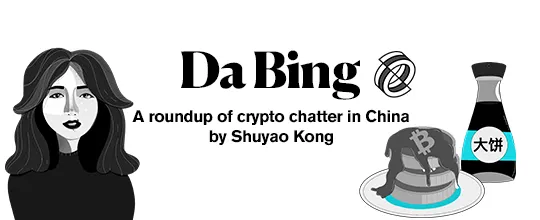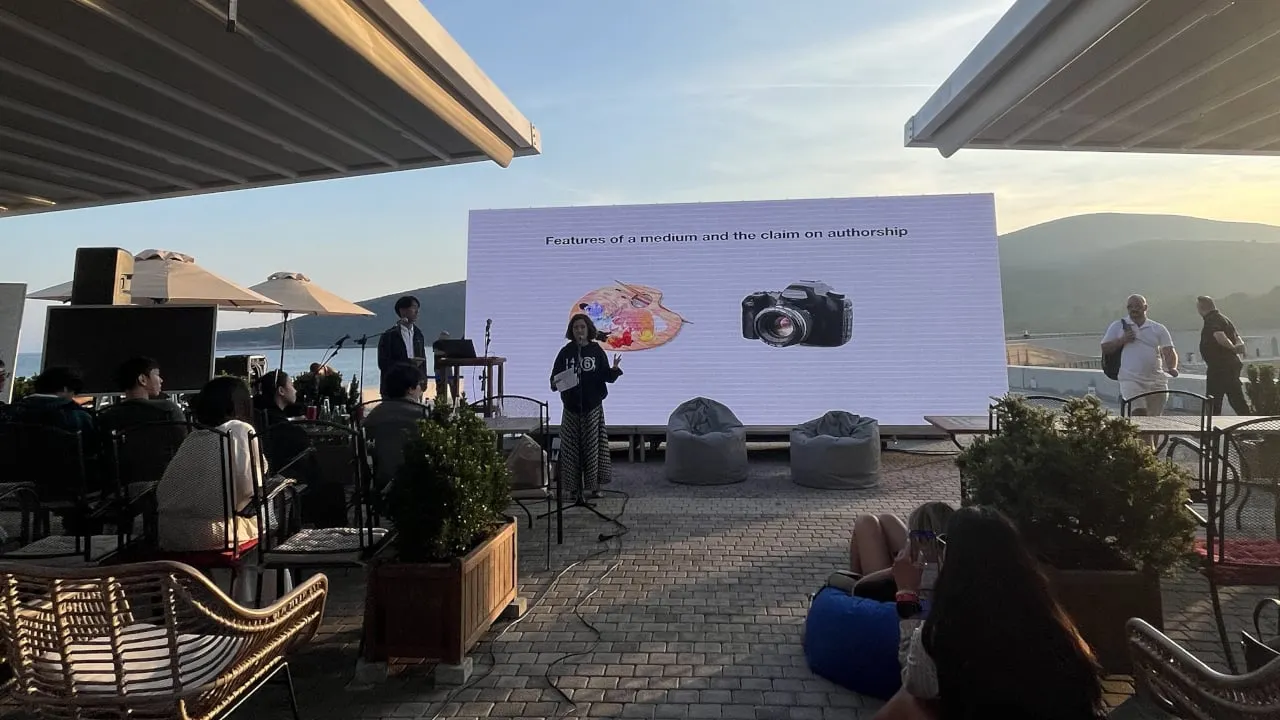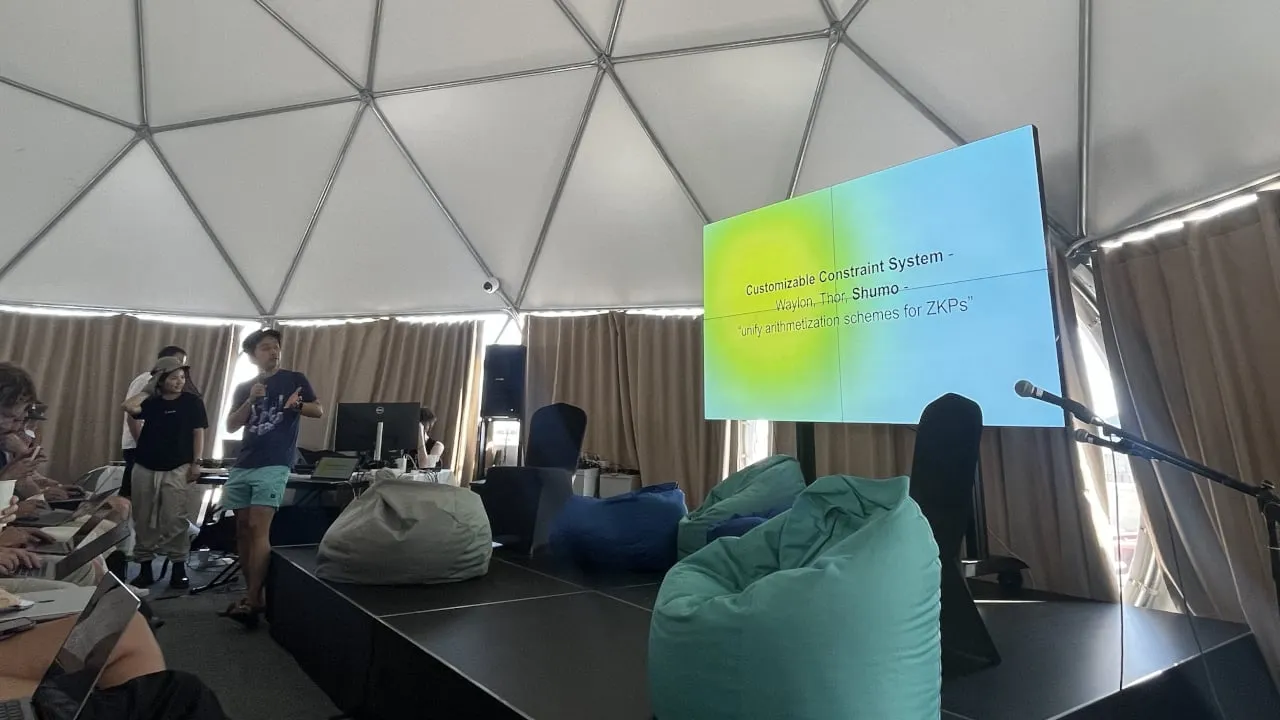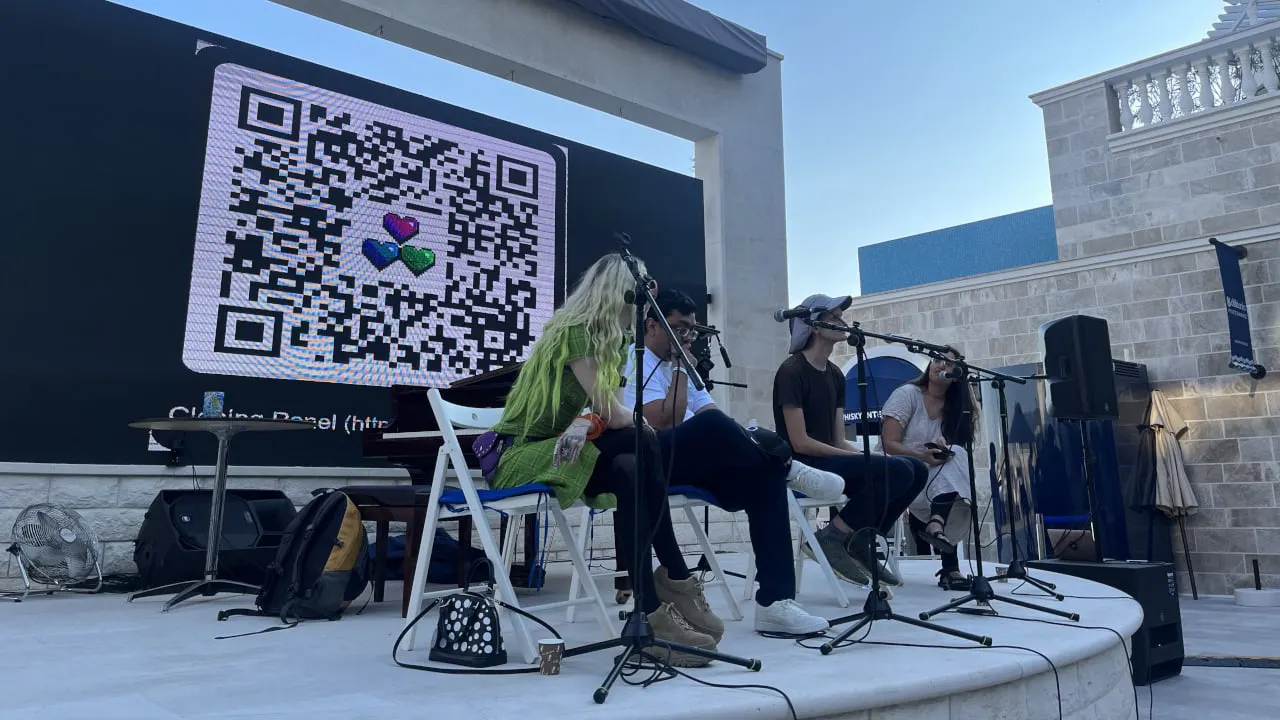
Zuzalu was more like an ancient Greece town square than a seaside crypto conference.
And despite what you might have heard, the meetup—the brainchild of Ethereum creator Vitalik Buterin—was more than just rich crypto bros plotting ways to cheat death. So much more.
I spent a month at Zuzalu, a kind of pop-up city program, that went for two months in Lustica Bay, Montenegro. I got to hang out with what seemed to me like some of the smartest people in the world. It was this concentration of talent that was perhaps the killer feature of Zuzalu.
When I arrived at Zuzalu (the word is made up and means nothing), I checked into my apartment using my ZuPass. The QR-code-generating “passport” is a zero-knowledge-proof-enabled identity system to verify residents. The app was built by one of the residents, like many other tech solutions that powered the program.
It didn't take too long to familiarize myself with the Zuzalu core landscape, a beautiful bay with green mountains sweeping dramatically down to touch the Adriatic. Most participants (200 people at a time were there though some 700 attended overall) lived in apartments rented by the core organizers at a fraction of the actual cost. (It cost me $1800 for the month, which included rent, the program fee and breakfast.)
Students and others who needed financial assistance were able to apply for a subsidy. Brother Bing (that's my nickname for Vitalik) was elated to meet with my friend Eric Annan, a founder from Ghana who’s building a Web3 talent protocol in Africa. Eric was able to make the trip thanks to the subsidy.
The bay is owned and developed by an Egyptian real estate company and the environs had pretty much everything the residents need: restaurants, grocery store, bakery, cafe (amazing pistachio ice cream), drug store, kids playground, and clothing store. For the month I was there, I became friends with the local hosts. They got to know the type of coffee I drink and always offered up free fruit in the afternoons when I needed something to nibble.
Brother Bing’s favorite spots
My favorite Zuzalu spot was the co-working space where talks, panels, and hackathons with free food were hosted. It was basically a huge room with rows of tables, chairs, and large monitors that looked eerily like a college library (which was my happy place when I was in school).
I loved the space because it allowed me to stay away from all the social activities and actually get work done. I also became fond of my fellow co-working Zuzaluans, a crowd of peerless talent in all disciplines.
From smart contract developer, to cryptographer, to security expert, network-state advocate, “coordi-nation” enthusiast, AI-alignment illuminati—and even Elon Musk’s ex-wife Grimes—a casual stroll around Zuzalu would give you an opportunity to talk to the smartest person in many industries. And that doesn’t even take into account the number of deals I closed in Zuzalu compared to most crypto gatherings.
Beyond crypto chitchat, the most prominent topic was AI alignment, or “X-risk” as the smarty pantses referred to it. The debate here, as everywhere, was whether AGI might become so powerful that it will free humans from labor or destroy us all. Discussions were led by Flashbot, a crypto project known for building MEV protocols and tools. People took sides and engaged in debates night after night.
It was moments like this that gave Zuzalu that town square feel.

Yes, you can be anti-longevity
The media (including this one!) portrayed Zuzalu as a bunch of crypto rich dudes who want to use tech to live forever. That’s far from the truth. There were longevity supporters who did cold plunges, fast, and monitored their glucose relentlessly. But most residents, like Brother Bing, just tried to live a healthy life.
Many were even proud of tinkering with occasional indulgences. For example, a few community members started an anti-longevity group to host pancakes with dangerously sugary toppings.
One member even added an “anti-longevity club emoji” next to his name.
I wouldn’t say that a ton of people were anti-longevity per se, but the point is when you reduce something as diverse as this group to collectively standing for any one thing, you’re going to get into trouble.
Brother Bing certainly enjoyed having the longevity experts around. One morning, I was approached by a yoga teacher at breakfast while eating a large pile of fruit. The lady told me that I would get a huge glucose spike if I ate fruit before having a heaping of protein or vegetables first. A glucose spike might lead to feeling more tired, moody, and lethargic for the rest of the day.
The conversation turned into an educational session on nutrition, which I am practicing today (eat your veggies and protein first)! I might not live forever, but I will be peppy during my time on this good earth.
No, Vitalik was not the CEO
On my first day at Zuzalu, I bumped into Vitalik who was sitting next to a mutual friend. He had just finished lunch and was hanging out with two other residents.
Vitalik is instrumental to the success of Zuzalu; he initiated many of the core programs, invited speakers and participants, and was available at weekly town halls to answer community questions. But to most residents, despite his place in history as the primary architect of Ethereum, he was no different from other core organizers. He went to breakfast like everyone else, hiked around the mountains like everyone else, participated in numerous salon-like discussions, and even sang karaoke, like everyone else. He also ate hotpot with the Chinese community, which was personally gratifying since I am the founder of Hotpot DAO.
By simply being just another one of the residents, Vitalik normalized his presence and made Zuzalu feel pretty egalitarian and not at all elitist, which seemed to be the prevailing view of the media. (Also: Shout out to the core organizers: Nicole, Milos, Janice! They handled the daily program, logistics, and security, while taking care of people’s emotional well-being.)

A city, a village, a tribe, a bubble, a mini-society
So what exactly was Zuzalu?
The reality is that Zuzalu is too young to be defined. It has been described in the media as Burning Man without sex, adult summer camp for the crypto-rich, or, more prosaically, as one endless conference. But to me, Zuzalu felt very much like the early days of Ethereum: raw and undefined—yet full of optimism and excitement about the future.
It was inchoate by design. It was supposed to stretch our imagination and provide a new way of living together—hopefully as some kind of altruistic example for others. The hope is that more countries will open up to similar social experiments and allow more curious people to experience the Zuzalu magic.
Leaving the place was a ceremony of its own, like the last day of graduate school, with lots of heartfelt goodbyes. Would I come back to Zuzalu v2? Yes, definitely. Would I live in Zuzalu forever? Would anyone live in Zuzalu forever? I asked myself this question while still chatting on the Zuzalu Telegram channel. (It's where I get fasting tips so I can eat hotpot for eternity!)
I guess one doesn't really leave Zuzalu because it kinda is and has always been an online community as its foundation. Happily, Brother Bing will get to keep tapping into the big brains of fellow Zuzalians before we meet each other next—with any luck, at an as-yet-to-be organized Zuzalu v.2.

